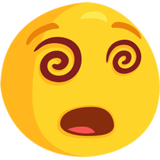The Halting Problem
Theoretical computer science has always been a fascinating branch of computer science because it is the field that challenges one’s mathematical maturity and critical thinking skills. You feel like a bonafide genius everytime you complete a proof. I am currently taking a class on the theory of computation and one neat problem we discussed is: The Halting Problem
“Consider a function called halt(A, I) which takes in a program A, and an input into the program, I. halt(A, I) will return true if the program halts, else it will return false if the program goes into an infinite loop. Given a computer program and some input to that program, will the program go into an infinite loop when fed that input?”
bool halt(A, I){
if(A(I) halts){
return true;
} else {
return false;
}
}
Now let’s begin thinking about clever inputs into this code. What would happen if we input the program into itself? A program, in its most literal sense, is a sequence of characters and strings. An input, is also a sequence of characters and strings. Let’s write a function that will let us pass in just a program which will act as both A and I
bool halt_on_self(A){
return halt(A, A);
}
Everything looks pretty normal so far, but we can actually do something really spooky with the two functions we have created.
What if we were to create another function let’s call it uh-oh(A) which will call halt_on_self(A).
The function will loop infinitely if halt_on_self(A) halts. However if halt_on_self(A) loops infinitely, then uh-oh(A) will halt.
void uh-oh(A){
if(halt_on_self(A)){
loop forever;
} else {
halt;
}
}
Here is the spooky bit: what happens if I let A = uh-oh? Let’s take a look at each possible outcome
1) If uh-oh(uh-oh) goes into an infinite loop, then that means halt_on_self(uh-oh) and halt(uh-oh, uh-oh) returned TRUE. But this means that uh-oh would halt when fed itself as input. Which would contradict our definition that uh-oh would loop forever if the program halted.
2) If uh-oh(uh-oh) halts, then that means halt_on_self(uh-oh) and halt(uh-oh, uh-oh) returned FALSE. This means that uh-oh would loop infinitely when fed itself as input. Which would contradict our definition that uh-oh would halt if the program looped infinitely.

What is the purpose of this thought experiment? Since we arrive at a paradox in both outcomes, we have proved that the halting problem is undecidable.